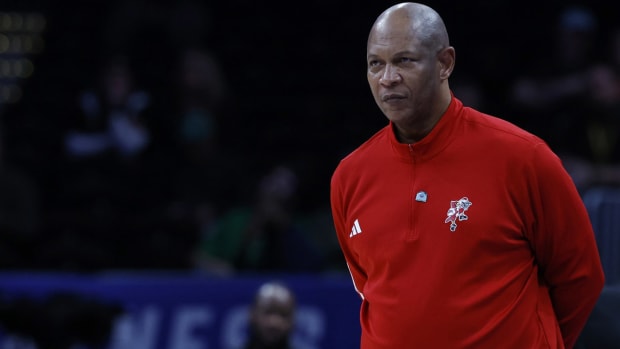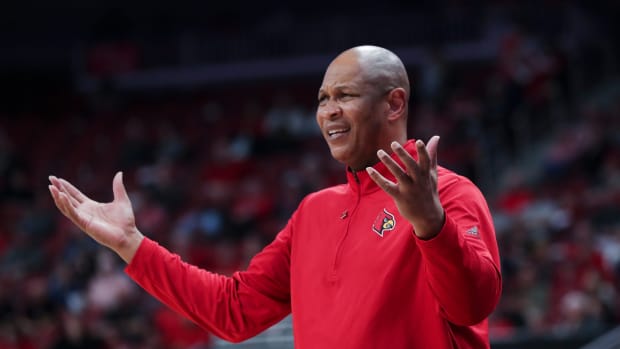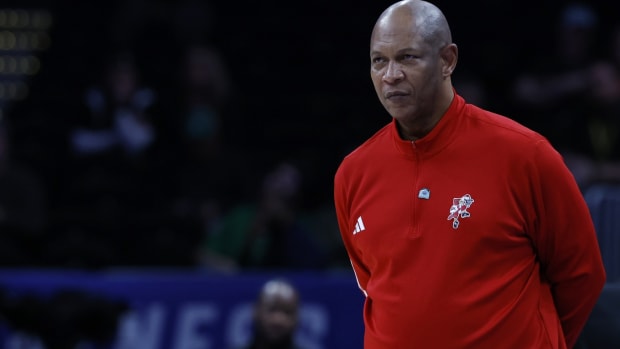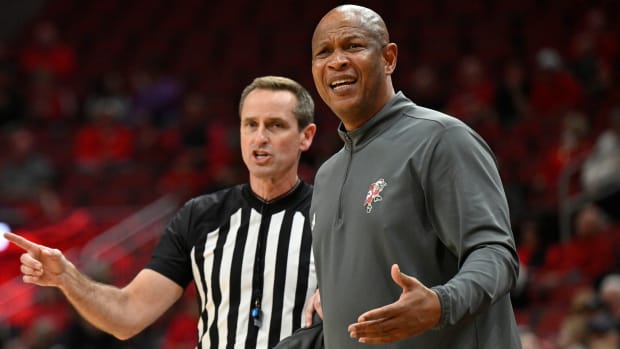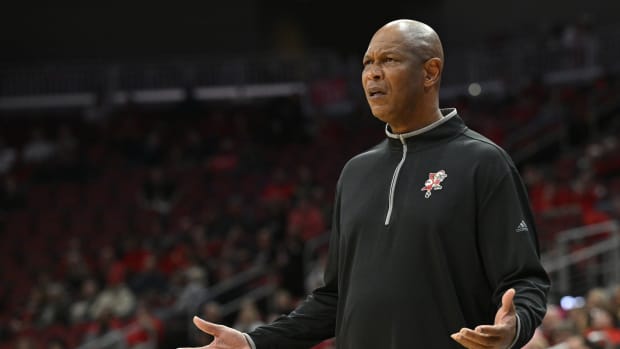What Memphis' IARP Ruling Could Mean for Louisville
LOUISVILLE, Ky. - Another case going through the Independent Accountability Resolution Process has finally come to a close.
On Tuesday, the IARP - an NCAA alternate to their Committee on Infractions that is designed to handle more complex cases - released their ruling on the Memphis men's basketball program's case. The Tigers got off lightly, and avoided major penalties given what they could have been facing.
The IARP ruled that Memphis has committed four Level II (significant breach of conduct) violations and five Level III (breach of conduct) violations. However, the Tigers were only hit with three-years probation, a $5,000 fine, and a vacation of the one win in which former center James Wiseman participated in.
Memphis' case originally stemmed from questions regarding Wiseman's eligibility. Penny Hardaway, before he became the head coach at Memphis, had paid Wiseman's family $11,500 in moving expenses. The case later evolved to include Hardaway and the Tigers' athletic department as a whole.
This is now the second of six cases accepted into the IARP to get resolved. The case involving the NC State men's basketball program and former Wolfpack guard Dennis Smith Jr. came to a conclusion last December. Smith had received a $40,000 payment from assistant coach Orlando Early, that was facilitated by a former Adidas consultant.
So what could this mean for the Louisville men's basketball program and their ongoing IARP case?
Initially, it's hard not to have at least a little bit of optimism that the Cardinals will avoid significant punishments as well. From an allegations standpoint, Louisville finds themselves in very similar situation to both Memphis and NC State.
Louisville is currently facing one Level I (severe breach of conduct) violations and six Level II violations. This stems from both the recruitment of Brian Bowen II and the Adidas pay-for-play scheme that arose in Sept. of 2017, as well as alleged recruiting violations that occurred under former head coach Chris Mack.
For comparison's sake, Memphis was originally charged with four Level I and two Level II allegations before the IARP dialed back their overall severity. The opposite is true with NC State. The Wolfpack were originally facing two Level I and two Level II allegations, and IARP ruled that they had in fact committed five Level I, four Level II and two Level III violations.
There is a noticeable discrepancy in the severity of the final violations by Memphis and NC State, but both schools managed to dodge the same bullet: a postseason ban. In fact, NC State's punishment was barely more severe than Memphis'.
The Wolfpack were hit with one year of probation, a $5,000 fine, a loss of one scholarship for the 2021-22 and 2022-23 seasons, various recruiting restrictions and the vacation of 15 wins where Smith participated. The most severe penalties went to head coach Mark Gottfried and Early, who each received show-causes.
This isn't a coincidence. The IARP has sent a clear message saying that they don't want to punish current individuals that had nothing to do with violations that occurred.
After NC State's ruling, IRP chief member Dana Welch said that they had "looked at the range of penalties that have been imposed on other level one mitigating cases," and that they "determined that we didn’t want to hurt or punish these student athletes that are currently competing."
This was a similar message after Memphis learned their fate. Huge Fraser, who oversaw the Tigers' case, said via CBS Sports' Matt Norlander that "our intention was to impact those with greater culpability … the panel was intentional in not prescribing penalties that would have an impact on current student-athletes.”
As many Louisville fans know by now, every single person that is tied to all seven of the Cardinals' allegations are now gone. Brian Bowen II never played a single game for Louisville. The university fired head coach Rick Pitino and athletic director Tom Jurich shortly after the Adidas scandal broke. Even both of their replacements - Chris Mack and Vince Tyra, respectively - are both gone.
Louisville is completely free of any individual tied to their IARP case, so it's not unreasonable to think that the Cardinals could avoid getting the dreaded postseason ban. Especially when you consider that NC State's case was also tied to the Adidas pay-for-play scheme.
Of course, there is one big difference between Louisville's case and the two cases that have been resolved. The Cardinals were under already under probation from the Katina Powell and Andre McGee sex scandal, putting Louisville squarely in repeat offender territory.
The IARP has established a clear message that they don't want to punish innocent individuals, but the fact that Louisville's allegations occurred while already under probation could change that. Not to mention that Oklahoma State, in fact, did receive a postseason ban from their infractions case that fell under the Adidas pay-for-play scheme umbrella - although that case did not go through the IARP.
It all boils down to a couple things: 1) how the IARP interprets Louisville's actions to distance themselves from those at the center of the Bowen/Adidas allegations, and 2) how the IARP interprets the severity of the more recent allegations.
You can make a case that the most recent ones, which was the use of graduate assistants in practice and the use of recruiting videos mimicking ESPN's "30 for 30" series, are not worthy of the Level II severity, and could be bumped down to Level III. Considering grad assistants can be used in practice now, you can make an argument to get rid of that allegation altogether.
Essentially, you can make a case that Louisville should be in line to avoid a postseason ban, given the IARP's track record and willingness to show mercy to those not directly involved. One can also make a case that Louisville's repeat offender status could come back to bite them, especially since we don't have a precedence set by another school on probation that has gone through the IARP.
All we know is that we should expect Louisville's ruling soon. There was a 129-day gap between Memphis' final hearing and their ruling, and a 132-day gap with NC State. By this timeline, UofL should expect a ruling in late October - right before the 2022-23 season starts.
Time will tell what the final verdict is. In my opinion, cautious optimism is the best way to approach it.
(Photo of KFC Yum! Center: Christopher Fryer - Louisville Business First)
You can follow Louisville Report for future coverage by liking us on Facebook, Twitter and Instagram:
Facebook - @LouisvilleReport
Twitter - @UofLReport
Instagram - @louisville_report
You can also follow Deputy Editor Matthew McGavic at @Matt_McGavic on Twitter
